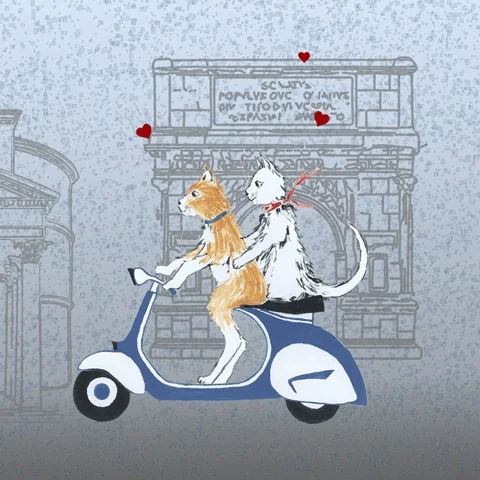
What do you call someone who speaks one language?
An American.
This joke has meandered its way into my day to day conversations a handful of times while traveling outside of the U.S., and it always leaves me with rose-colored cheeks and a knot of dread in my gut. Even worse, however, are the visits to international cafes, restaurants, shops, and train stations, where I find myself repeating over and over, ‘Do you speak English?’ or ‘Is English okay?’
It wasn’t until recently that I learned about the Common European Framework of Reference for Languages (CEFR), the international standard for describing language ability. The exam uses a six-point scale, from A1 for beginners, up to C2 for those who consider themselves fluent. I was perplexed as to why after five years of taking French classes in middle school and high school, this was never an exam I was required or even encouraged to take.
English-Only Movement and Monolingualism
In general, Americans carry a different perception of multilingualism and its significance to our way of life. This mind-set dates back to the early 1900s when President Theodore Roosevelt explicitly stated:
“We have room for but one language in this country, and that is the English language, for we intend to see that the crucible turns our people out as Americans, of American nationality, and not as dwellers in a polyglot boarding house.”
Harsh words, Teddy.
The “English Only” attitude hurts our neighbors and us. We not only marginalize non-native English speakers this way, but it decreases the likelihood that we’ll ever create and sustain multilingual programs that flourish on our turf. As one of the most diverse countries in the world, the “English Only” movement seems at odds with our values as a nation. I don’t know what the solution is, other than encouraging the generations that come after us to shift their view and embrace multilingualism in the same way the rest of the world does.
It doesn’t help that when we travel, we are often, if not always, met with cultures that have embraced and promoted multilingualism and will meet us on our level. Americans often receive this courtesy, not necessarily with a sense of entitlement, but with a perception that there’s no need to attempt another’s language when they’ve already mastered ours. But relying exclusively on our own native tongue, we’re missing out on the deeper cultural layers of the countries we visit.
Regardless, as a monolingual traveler, you may not have the time or the desire to learn every language for every country you plan to visit, and that’s perfectly okay. You can still break through language barriers and integrate yourself in other minor ways that not only make you feel more in sync with the environment but will make the people you’re visiting feel as though their culture is being respected and appreciated.
Everyday Vocabulary in 4 European Languages
Since living in Europe, I’ve noticed that the best way to connect with locals is when speaking to people in the service industry. You’re often repeating the same phrases and questions, and it’s a great way to get comfortable with certain vocabulary words.
Over the last year, I’ve been a frequent visitor to France, Switzerland, Spain, and Italy. Listed below are some of the most common phrases I use every day.

The 27 Most Useful Phrases When Traveling Around Europe
1. Hello
- French: Bonjour
- German: Hallo
- Italian: Ciao
- Spanish: Hola
2. Goodbye
- French: Au revoir
- German: Tschüss
- Italian: Arrivederci
- Spanish: Adiós
3. Thank you
- French: Merci
- German: Danke
- Italian: Grazie
- Spanish: Gracias
4. Please
- French: S’il vous plaît
- German: Bitte
- Italian: Per favore
- Spanish: Por favor
5. You’re Welcome.
- French: De rien.
- German: Bitte.
- Italian: Prego.
- Spanish: De nada.
6. Yes, No
- French: Oui, non
- German: Ja, nein
- Italian: Si, no
- Spanish: Si, no
7. I’m sorry.
- French: Je suis désolé.
- German: Es tut mir leid.
- Italian: Mi dispiace.
- Spanish: Lo siento.
8. Can I have…
- French: Puis-je avoir…
- German: Kann ich haben…
- Italian: Posso avere…
- Spanish: ¿Puedo tener…
9. Counting 1-5
- French: Un, deux, trois, quatre, cinq
- German: Eins, zwei, drei, vier, fünf
- Italian: Uno, due, tre, quattro, cinque
- Spanish: Uno, dos, tres, cuatro, cinco
10. How much does this cost?
- French: Combien ça coûte?
- German: Wie viel kostet das?
- Italian: Quanto costa?
- Spanish: ¿Cuánto cuesta?
11. I am…
- French: Je suis…
- German: Ich bin…
- Italian: Sono…
- Spanish: Estoy…
12. What’s your name? My name is…
- French: Comment tu t’appelles? Mon nom est…
- German: Wie heißen Sie? Ich heisse…
- Italian: Come ti chiami? Mi chiamo…
- Spanish: ¿Cómo te llamas? Me llamo…
13. How are you?
- French: Comment allez-vous?
- German: Wie geht es dir?
- Italian: Come va?
- Spanish: ¿Cómo está? – How are you? (formal, to a stranger)
14. Sorry, I don’t understand.
- French: Désolé, je ne comprends pas.
- German: Entschuldigung, ich verstehe nicht.
- Italian: Mi dispiace, non capisco.
- Spanish: Lo siento, no entiendo.
15. Where is the bathroom?
- French: Où sont les toilettes?
- German: Wo ist die Toilette?
- Italian: Dov’è il bagno?
- Spanish: ¿Dónde está el baño?
16. How do you say…?
- French: Comment dites-vous?
- German: Wie sagt man…?
- Italian: Come si dice…?
- Spanish: Cómo se dice…?
17. What do you recommend?
- French: Que recommandez-Vous?
- German: Was empfehlen Sie?
- Italian: Che cosa mi consiglia?
- Spanish: ¿Qué recomienda usted?:
18. Do you speak English?
- French: Parlez vous anglais?
- German: Sprichst du Englisch?
- Italian: Parli inglese?
- Spanish: ¿Hablas inglés?
19. Menu, please.
- French: Le menu, s’il vous plaît.
- German: Menü, bitte.
- Italian: Il menu, per favore.
- Spanish: Menu, por favor.
20. Excuse me.
- French: Excusez-moi.
- German: Entschuldigung.
- Italian: Mi scusi.
- Spanish: Disculpe.
21. Can I pay by credit card?
- French: Puis-je payer par carte bancaire ?
- German: Kann ich mit Kreditkarte bezahlen?
- Italian: Posso pagare con la carta di credito?
- Spanish: ¿Puedo pagar con tarjeta de crédito?
22. I’d like to go to…
- French: J’aimerais aller à…
- German: Ich würde gerne nach gehen…
- Italian: Mi piacerebbe andare a…
- Spanish: Me gustaría ir a…
23. I’d like to rent a bike/car.
- French: Je voudrais louer un vélo / voiture.
- German: Ich möchte ein Fahrrad / Auto mieten.
- Italian: Mi piacerebbe noleggiare una bicicletta / auto.
- Spanish: Me gustaría alquilar una bicicleta / auto.
24. The check, please.
- French: L’addition, s’il vous plaît.
- German: Die Rechnung, bitte.
- Italian: Il conto, grazie.
- Spanish: El cheque por favor.
25. A coffee, please.
- French: Un café, s’il vous plaît.
- German: Einen Kaffee bitte.
- Italian: Un caffè, per favore.
- Spanish: Un cafe por favor.
26. A beer, please.
- French: Une bière s’il vous plaît.
- German: Ein Bier bitte.
- Italian: Una birra per favore.
- Spanish: Una cerveza por favor.
And perhaps the most important:
27. An Aperol Spritz, please.
- French: Un Aperol Spritz, s’il vous plaît.
- German: Ein Aperol Spritz, bitte.
- Italian: Uno spritz con Aperol, per favore.
- Spanish: Un Aperol Spritz, por favor.

Speak the Language the Way You’ve Always Wanted
If you will be in a country for more than just a few days why not dive deeper into the language. You’ll see the benefits of having real conversations with native speakers. Let Pimsleur get you up and running!

No Comments for "26 Essential Travel Phrases in 4 European Languages"